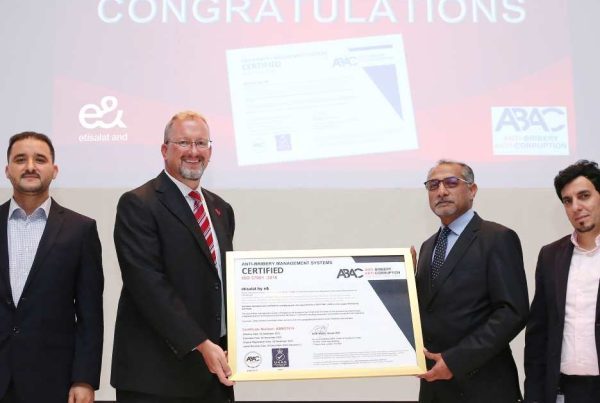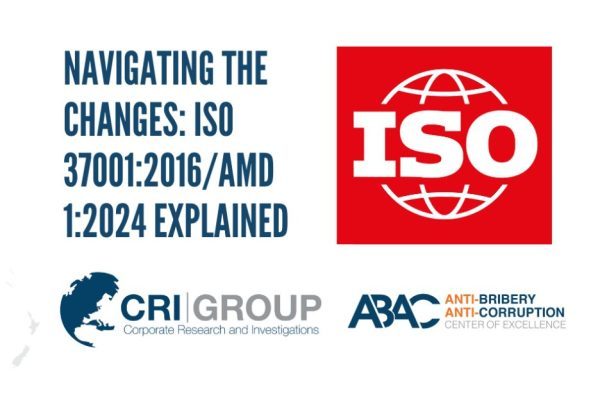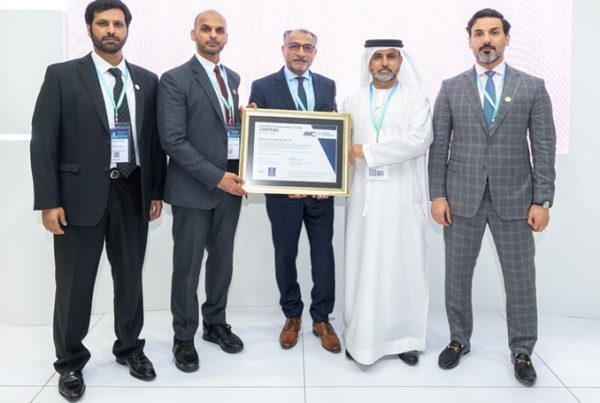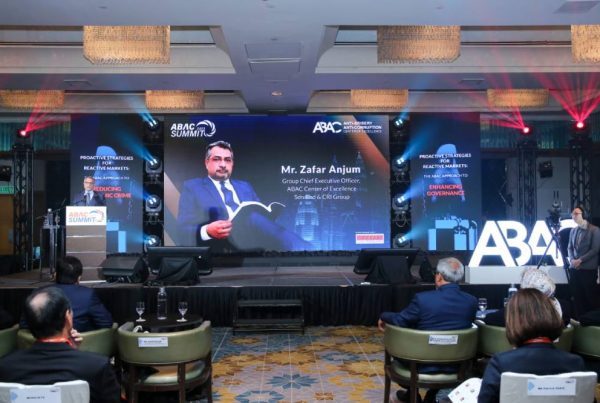The United Kingdom scores 77 out of 100 on Transparency International’s (TI) 2020 Corruption Perceptions Index (CPI), as is one of the 25 least corrupt countries across the globe. However, it all seems great on the surface as corporate fraud and corruption cases have been noticeable in various industries across the UK. TI reports that corrupt actors enjoy their illicit gains by “buying luxury property in the world’s most sought-after cities, like London”. Based on the article “CPI 2020: Trouble in the top 25 countries”, “While the UK (77) is the first G20 country to launch a public register of beneficial ownership, a loophole in the law allows foreign companies to purchase real estate anonymously. This is particularly problematic as research shows that over 75 per cent of properties subject to criminal investigations between 2004 and 2015 used offshore anonymous companies to hide their owners’ identities. The UK government committed to closing this loophole by introducing a register of beneficial ownership for property, but it has yet to be implemented. The necessary legislation has been subject to significant delays. In the meantime, rich businesspeople linked to autocratic regimes are allegedly purchasing property via shell companies, such as billionaire and daughter of former President of Angola, Isabel de Santos.”
To discuss the situation of corporate fraud and corruption, CRI Group and its ABAC® Center of Excellence were invited to share the expert views in the special InDepth Feature by Financier Worldwide “Corporate fraud and corruption 2021”. In this edition, CRI Group’s CEO Zafar Anjum and ABAC®’s Scheme Manager Huma Khalid talk about how corporate fraud and corruption affect businesses not only in the UK, but across the globe, and provide solutions and insights for businesses to become better protected from corporate fraud, bribery and corruption. Read on the answers to the below questions:
- To what extent have you seen a notable rise in the level of corporate fraud, bribery and corruption uncovered in your country of focus?
- Have there been any legal and regulatory changes implemented in your country of focus designed to combat fraud and corruption? What penalties do companies face for failure to comply?
- In your opinion, do regulators in your region have sufficient resources to enforce the law in this area? Are they making inroads?
- If a company finds itself subject to a government investigation or dawn raid, how should it respond?
- What role are whistleblowers playing in the fight against corporate fraud and corruption? How important is it to train staff to identify and report potentially fraudulent activity?
- What advice can you offer to companies on conducting an internal investigation to follow up on suspicions of fraud or corruption?
- What general steps can companies take to proactively prevent corruption and fraud within their organisation?
-
Q: To what extent have you seen a notable rise in the level of corporate fraud, bribery and corruption uncovered in your country of focus?
A: The COVID-19 pandemic has created increased opportunities for fraud worldwide. The UK is not immune, unfortunately, and such a disruptive event as the pandemic increases the likelihood that normal safeguards and risk management controls can be bypassed and subverted. There has been an increase in reported fraud and corruption cases over the past year. A survey of fraud experts by the Association of Certified Fraud Examiners (ACFE) in August 2020 showed that 77 percent were seeing an increase in fraud. Perhaps not surprisingly, cyber fraud is the fastest-growing problem area, but there has also been an uptick in unemployment fraud. This is bad news in the UK, where fraud is our most common crime, costing the country £190bn annually, according to the Royal United Services Institute (RUSI).
-
Q: Have there been any legal and regulatory changes implemented in your country of focus designed to combat fraud and corruption? What penalties do companies face for failure to comply?
A: There is proposed legislation, supported by the secretary of state of the UK’s Department of Business, Energy and Industrial Strategy, that would increase accountability for corporations that produce falsified financial statements. This includes a provision that would require company directors to personally sign off on their corporation’s financial statements, under penalty of fines and possible prison time. Under the Sarbanes-Oxley Act in the US, the penalty for falsely certifying such statements is steep: up to 20 years in prison and up to $5m in fines, and the UK is looking at similar measures to step up its fight against fraud and corruption. The UK also recently approved the formation of an audit, reporting and governance authority (ARGA) that should come into force within the next two or three years. Accordingly, the UK is taking a stronger stance against fraud going forward.
> STAY UPDATED: Sign up for risk management, compliance, anti-bribery and anti-corruption related news, solutions, events and publications.
-
Q: In your opinion, do regulators in your region have sufficient resources to enforce the law in this area? Are they making inroads?
A: Combatting fraud is never straightforward. When looking at progress in detecting and preventing fraud, it sometimes feels like a question of whether the glass is half full or half empty. For example, the Serious Fraud Office (SFO) brought 13 fraud defendants to trial in 2019 and 2020, with a 95 percent four-year success rate by case. Many of these represent large frauds, and they are meaningful wins, but how many more fraudsters are out there undiscovered? Other bodies, including Her Majesty’s Revenue and Customs (HMRC), among others, also have key roles to play in investigating fraud, but a considerable amount of fraud is still investigated and prosecuted at the local level. It is important for leaders in the UK to know what resources law enforcement have and where they need training and support in the fight against fraud.
-
Q: If a company finds itself subject to a government investigation or dawn raid, how should it respond?
A: Any investigation, and especially a raid, can be an incredibly stressful time for a company and its employees. The important thing is to not panic – the investigators have a job to do, and the sooner they get to the truth of the situation, the better for everyone. Companies should direct their management and their employees to cooperate fully, while also engaging legal counsel to properly protect the corporation from future litigation. If fraud is detected, it is a criminal matter and the company should make a good faith effort to work with prosecutors and regulators, while making sure to document all control measures and prior steps taken to manage fraud risk. Having a track record of meeting compliance requirements and having proper internal controls in place at the time fraud occurs could have a mitigating effect in terms of potential prosecution and penalties down the road.
Corporate fraud & corruption in the UK & UAE 2021
Download the reprint of the interview, covering not only the UK but also the United Arab Emirates.
-
Q: What role are whistleblowers playing in the fight against corporate fraud and corruption? How important is it to train staff to identify and report potentially fraudulent activity?
A: Employees are a company’s first line of defence against fraud and corruption. But training them to recognise the red flags of fraud is only half of the process. The company must also implement a reporting system that is anonymous and easy to use, so that employees are encouraged to report any suspicions. Then, the company must follow through and fully investigate any reports that do come in. If they do not, whistleblowers will believe that combatting fraud and corruption is not a corporate priority, and the tips will stop coming in. How important are those tips? According to the ACFE, they are by far the highest detection method for fraud, well above audits and other means. The company should communicate that a whistleblower hotline or online reporting system is available, and that there is a zero-tolerance policy for any type of retaliation against whistleblowers. Over time, the tips will come in.
-
Q: What advice can you offer to companies on conducting an internal investigation to follow up on suspicions of fraud or corruption?
A: Investigations can be challenging, and they require expertise. For example, there are rules for collecting and handling evidence, including physical evidence and witness statements, that must be followed for such evidence to be admissible in court. There are also laws in the UK dealing with privacy and the rights of the accused. The bottom line is that a company already dealing with a potentially costly and damaging fraud scenario should not risk adding more legal trouble through a faulty investigation. Hire experts who deal with corporate crime and specialise in fraud and corruption cases. Like any other area of expertise, they will have the knowledge and resources to help proceed with an investigation and lead it to the most favourable outcome for your company. If you already have anti-fraud professionals on staff, let them take the lead, but provide outside resources as needed.
-
Q: What general steps can companies take to proactively prevent corruption and fraud within their organisation?
A: A fraud prevention strategy has many different elements, and the sooner companies implement them, the sooner they can begin to work together in a proactive way to prevent fraud. Mandating employee training, such as ISO 37001 ABMS, having an ethical code of conduct signed by every member of staff, providing regular and surprise audits, and implementing a fraud reporting system are all effective ways to help prevent and detect fraud and corruption. None of these methods is strong enough on its own to properly protect organisations. But together, they can be very effective. It is also important to set a ‘tone at the top’, from ownership, directors and management on down, that fraud will not be tolerated. Anti-fraud controls only work if the company sees them through and thoroughly investigates every report. When fraud is confirmed, any perpetrators should be terminated and potentially prosecuted, sending a message of zero-tolerance.
> Find out more about the ISO 37001 training
Source and credits
The original version of the Q&A was published on Financier Worldwide’s InDepth Feature: Corporate Fraud & Corruption 2021.
Download the reprint here.
About ABAC® Center of Excellence
ABAC® Center of Excellence is an independent certification body powered by CRI Group. ABAC® offers a complete suite of services and solutions designed to educate, equip and support the world’s leading business organisations with the latest best-in-practice risk & performance assessments, systems improvement & standards certification. Find out more about ABAC®!
ABAC® programs protect your organisation from damaging litigation & safeguard your business in the global marketplace by providing certification & training in internationally recognised ISO standards, such as ISO 37001 Anti-Bribery Management Systems, ISO 37301 Compliance Management Systems and ISO 31000 Risk Management Systems.
Based in London, CRI Group works with companies across the Americas, Europe, Africa, Middle East and Asia-Pacific as a one-stop international Risk Management, Employee Background Screening, Business Intelligence, Due Diligence, Compliance Solutions and other professional Investigative Research solutions provider. We have the largest proprietary network of background-screening analysts and investigators across the Middle East and Asia. Our global presence ensures that no matter how international your operations are we have the network needed to provide you with all you need, wherever you happen to be. CRI Group also holds BS 102000:2013 and BS 7858:2012 Certifications, is an HRO certified provider and partner with Oracle. Contact CRI Group today for further information on how CRI Group can help your business.







